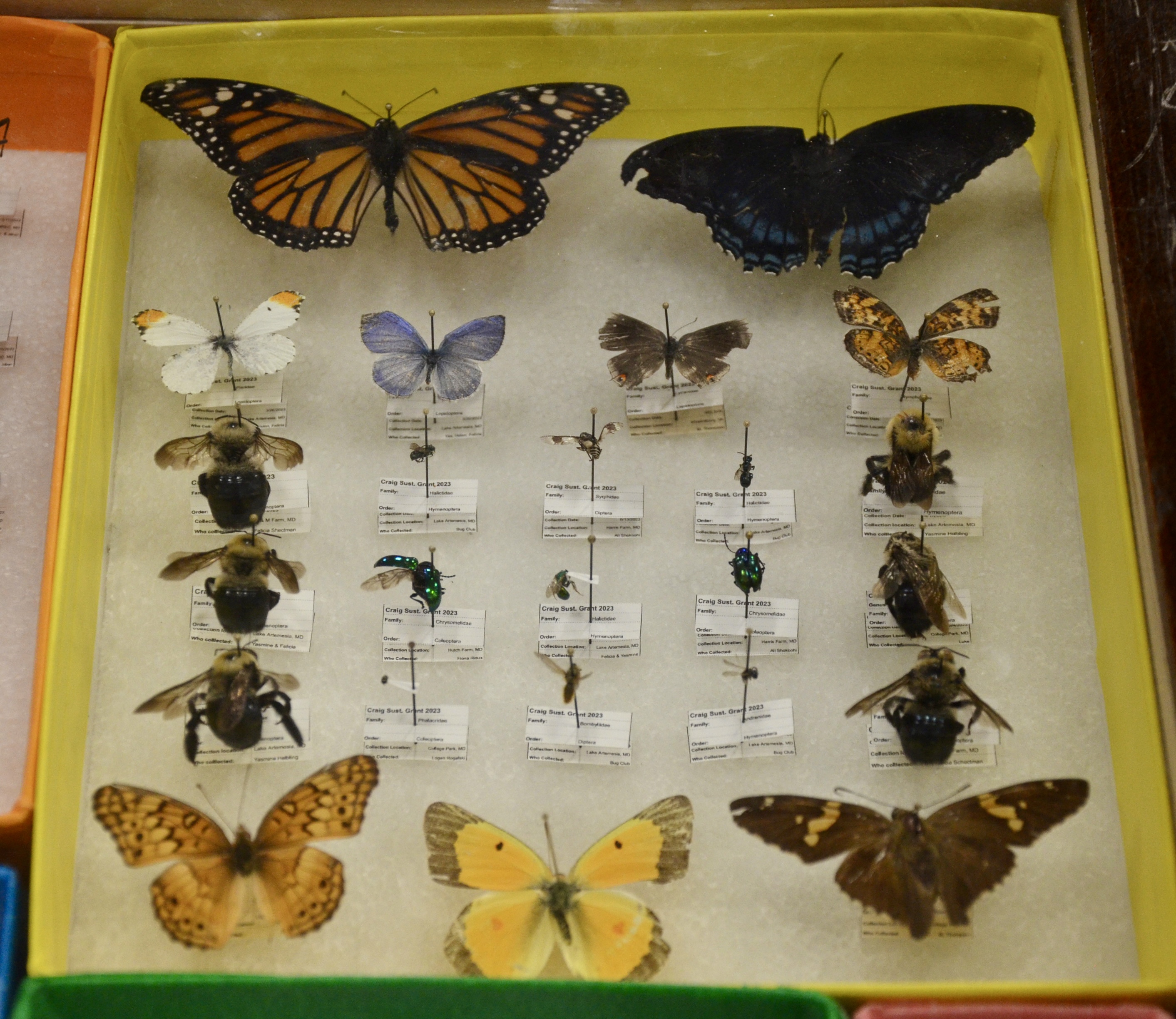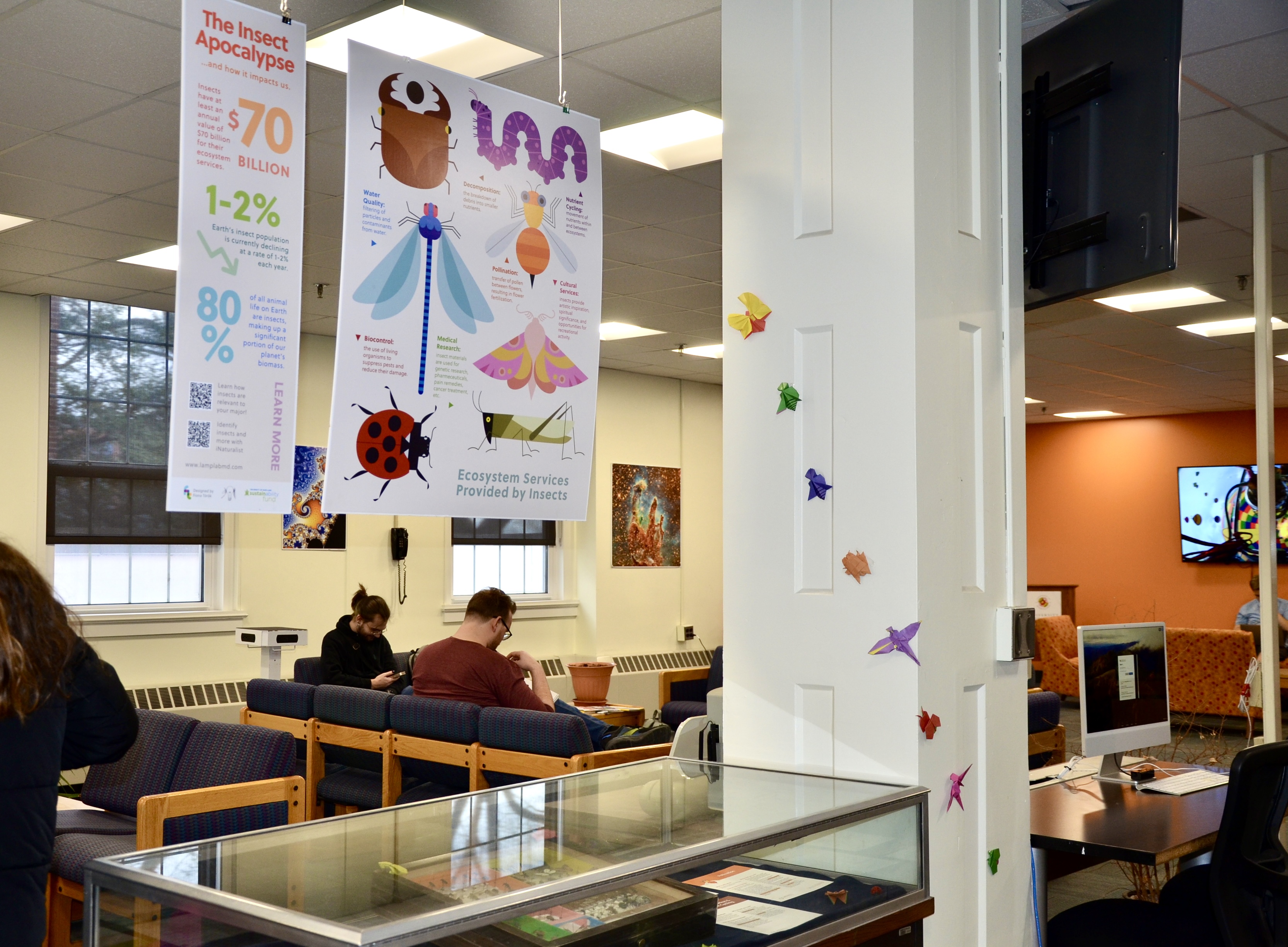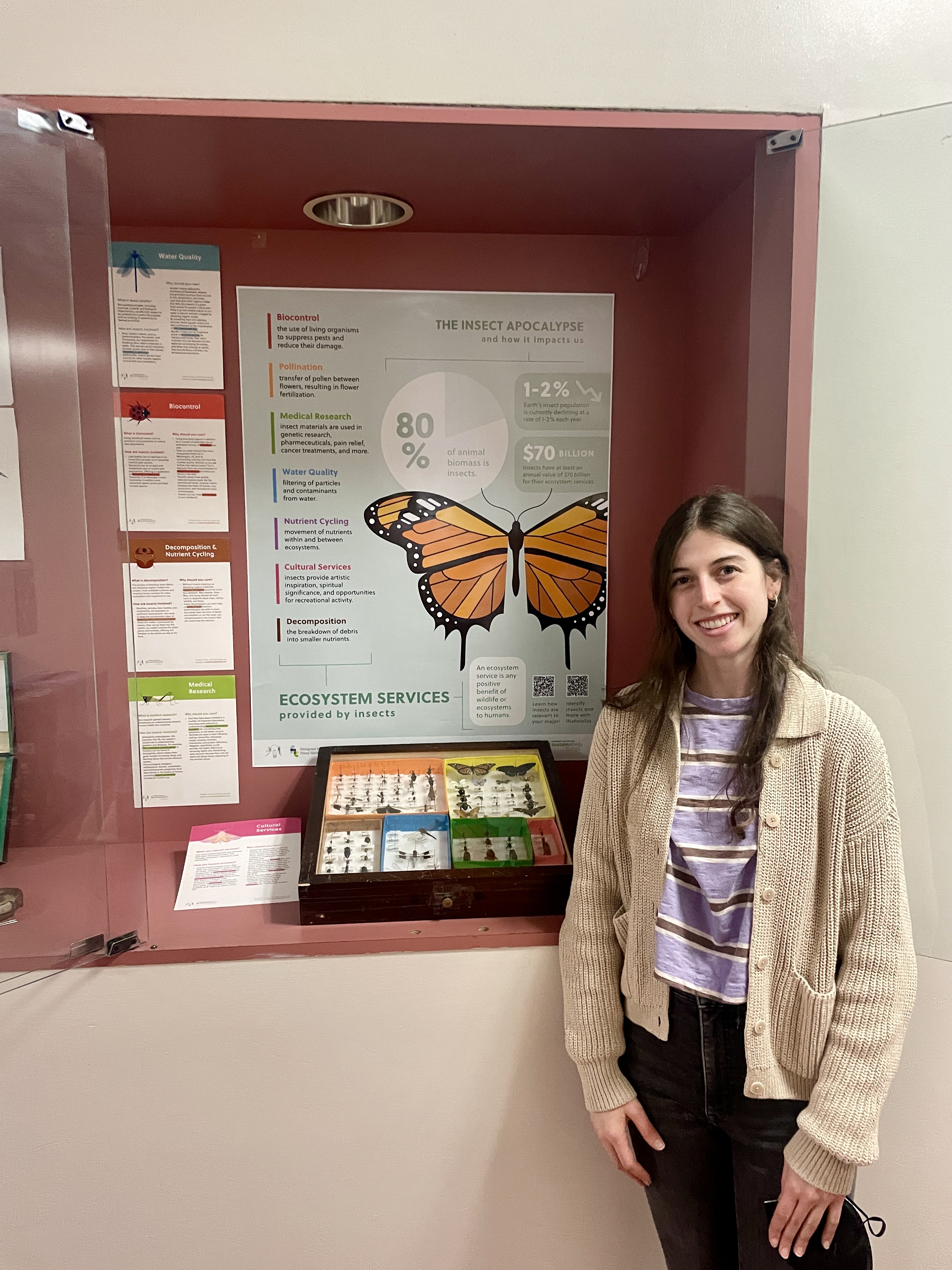
Imagine a world without the hum of bees, the marching line of ants, the fluttering of butterflies. This could become a reality – research indicates that insect populations are currently declining at a rate of 1-2% each year (Janicki, 2022).
Confronted with this bleak observation, graduate student Helen Craig knew she needed to educate UMD students about the importance of insect biodiversity. However, she was well aware many students at UMD did not share her same interest. “Most individuals are fearful of insects or view them with a sense of disdain despite our dependence on them,” Craig said.
Craig had a passion for insects that began during her junior year of college while she was taking a freshwater biology course. After graduating from UMD in 2022 with a degree in Ecology and Evolutionary Biology, Craig spent the following year as the Lab Manager of the Lamp Lab.
Throughout her time as an undergraduate, Craig experienced a general lack of knowledge about insects and their ecosystem services amongst the campus community. During her first year of graduate school, she received an email advertising UMD’s Sustainability Fund grant program and saw this as an opportunity to inform students about how crucial insects are to the environment
In 2022, Craig received a Sustainability Fund grant to create three insect displays around UMD’s campus. Each display features a glass-covered box with pinned insects inside. The boxes are surrounded by informational posters explaining why insects are vital to a healthy environment and how they impact student’s everyday lives.

The process of creating these displays took a year. Craig collected the bugs with the help of students Yasmine Helbling, Felicia Shechtman, UMD Bug Club, and more. “Collectively, it took over 40 hours to collect all of the insects for the displays,” said Helbling.
The featured insects were collected from a wide array of locations. This included on-campus locations like the Bee Wall and the Community Learning Garden, and off-campus locations like Lake Artemesia and even their own homes. The group then spent over 100 hours over the course of a few months working to “preserve them, pin them, label them, and sort them into different ecosystem services,” Craig said.
Fiona Török, a senior Graphic Design student at UMD, was brought on to the project in May 2023 to create the information posters.
“I immediately knew I wanted to apply because it combines my two biggest passions - design and sustainability,” Török said. She spent six months designing the three main posters and six informational cards in each display case. Török emphasized how much deliberation went into the images and text displayed on each poster.
“We wanted the images to be eye-catching and colorful without being childish and oversimplified,” Török said. Her goal was to emphasize “the two-sided coin of how important insects are, and why it is so concerning that they are rapidly disappearing.” At each installation, the posters capture student interest by connecting the displayed insects to information about their services in the ecosystem and the overwhelming impacts of an insect apocalypse.
“I hope students consider how their field of study or future career is tied to insects and how they can be an advocate or ally,” said Craig. To help students understand this connection, the displays offer QR codes. The codes link to a website prompting students to select their major, then provide additional articles and videos about how insects play a role in their specific field of interest.

On January 29th, 2024, Craig, Török, Yasmine Helbling and Jenna Kraemer installed the displays on campus. Visit the displays in the STEM Library in Kirwan Hall, the first floor of the Plant Sciences building, or in McKeldin Library.
More than just bug enthusiasts contributed to the displays: each case is adorned with intricate paper insects made by students in the Origami Club. Török hopes that students will take the time to learn something new as they pass the displays throughout their day, “Perhaps it will make them think about how the smallest things can have the biggest impact,” Török said.
One day, Craig hopes to have a fourth installation in Stamp Student Union. For now, students, staff, and faculty can visit the displays in the three locations on campus.
The Sustainability Fund at UMD awarded Craig a $7,000 grant to fund her project. “Overall, I absolutely loved working with the Sustainability Fund,” Craig said. In 2023, Craig re-applied to the fund for a separate project on methane-mitigating protein supplements in dairy cattle.
